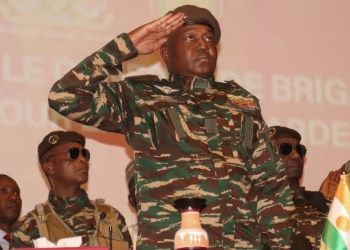South Korea’s President Yoon Suk-yeol declared martial law on Tuesday night, the first such move in nearly 50 years, citing “anti-state forces” and threats from North Korea. However, the decision, announced in a late-night broadcast, was widely seen as a response to his political troubles rather than external threats.
The declaration temporarily placed the military in charge, deploying troops to parliament and banning political activities and protests. This sparked immediate backlash, with opposition lawmakers convening an emergency vote to overturn the measure. Thousands of citizens also protested outside parliament. By early Wednesday, the National Assembly invalidated the martial law order, forcing Yoon to rescind it.
Background and Impact:
Yoon, facing corruption scandals and plummeting approval ratings, has struggled to govern since losing parliamentary control to the opposition in April. His declaration of martial law, seen as an overreach, marked a significant challenge to South Korea’s democratic principles.
This incident has raised concerns over Yoon’s leadership and South Korea’s global reputation as a thriving democracy. Experts describe it as a political misstep, further straining the president’s position and intensifying calls for his impeachment.















